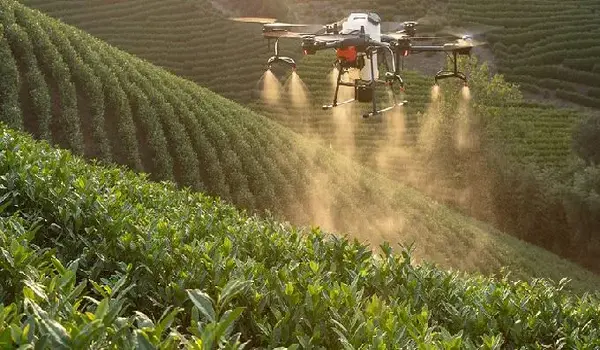Introduction BulkAgro Chem is dedicated to revolutionizing agriculture with innovative solutions that promote sustainable and effective pest management. Our advanced products, including bio-pesticides and eco-friendly solutions, are designed to support Integrated Pest Management (IPM) practices, reducing the need for chemical pesticides. By incorporating these practices and products, farmers can enhance crop protection while minimizing environmental impact and promoting long-term agricultural health. Benefits of Integrated Pest Management (IPM) Integrated Pest Management (IPM) offers several benefits that can significantly reduce reliance on chemical pesticides: Reduced Chemical Use: IPM employs a combination of biological, cultural, and mechanical controls to manage pests, leading to a decreased need for chemical pesticides. Enhanced Pest Control: By using a variety of methods, IPM provides more comprehensive pest control and reduces the likelihood of pest resistance. Environmental Protection: IPM practices are designed to minimize environmental impact, protecting non-target species and reducing pollution. Economic Savings: Reducing reliance on chemical pesticides can lower input costs and improve overall farm profitability. Improved Crop Health: IPM promotes practices that enhance plant health and resilience, leading to better crop yields. Sustainable Agriculture: IPM supports sustainable farming by focusing on long-term solutions and minimizing the ecological footprint. Reduced Risks to Human Health: Less chemical pesticide use decreases the risk of pesticide residues in food and potential health hazards. Promotion of Biodiversity: IPM encourages the use of natural predators and beneficial insects, supporting ecosystem balance and biodiversity. How IPM Practices Reduce Reliance on Chemical Pesticides Diverse Control Methods: IPM integrates various pest control methods, including biological control (using natural predators), cultural practices (crop rotation and habitat management), and mechanical control (traps and barriers). This diversity reduces dependency on chemical solutions. Monitoring and Early Detection: Regular monitoring of pest populations helps detect issues early and apply targeted control measures. This proactive approach prevents large-scale infestations that might require extensive pesticide use. Threshold Levels: IPM involves setting action thresholds to determine when intervention is necessary. This approach ensures pesticides are only used when absolutely needed, reducing overall chemical application. Natural Enemies: Utilizing beneficial insects and microorganisms that prey on or outcompete pests helps manage pest populations naturally, minimizing the need for chemical interventions. Cultural Practices: Implementing practices such as crop rotation, soil management, and resistant crop varieties can reduce pest habitat and lower the chances of pest outbreaks, reducing reliance on chemical pesticides. Conclusion Integrated Pest Management (IPM) represents a strategic approach to pest control that significantly reduces the dependence on chemical pesticides. By employing a combination of biological, cultural, and mechanical methods, IPM not only enhances pest control but also promotes environmental sustainability and economic efficiency. At BulkAgro Chem, we are committed to supporting farmers with innovative solutions that integrate seamlessly into IPM practices. Our eco-friendly products and advanced technologies help farmers manage pests effectively while minimizing environmental impact. Embracing IPM practices and our supportive products enables farmers to achieve better crop protection, enhance soil health, and contribute to a more sustainable agricultural future. By reducing reliance on chemical pesticides, farmers can foster a healthier ecosystem, improve crop quality, and promote long-term agricultural sustainability.
Bulkagrochem
Submit your contact number & get exciting offer
Bulkagrochem.com
Bulk Purchase & Get Bulk Discount
Share your number to receive customized bulk pricing, availability updates, and exclusive offers directly via WhatsApp.

Recommended Products



